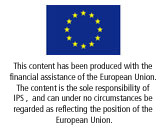By Fabíola Ortiz
RIO DE JANEIRO, Jun 4, 2012 (IPS) – As Rio de Janeiro prepares to host the United Nations Conference on Sustainable Development, which will discuss the green economy, the Brazilian city has put an end to one of its worst environmental sins: the enormous Jardim Gramacho garbage dump on Guanabara Bay.
For over three decades, 60 million tons of solid waste were dumped at the landfill – the largest in Latin America, and one of the largest in the world – creating a 50-metre-tall mountain of untreated rubbish on a site where there was no lining to prevent leakage into the bay, located to the north of the city.
Jardim Gramacho was the most glaring example of the solid waste management problem faced by Brazil’s cities, which affects many households located on the edges of improvised garbage dumps, as well as the environment.
“Rio de Janeiro will not tolerate any more violence against the environment, like this environmental crime that the city has committed for so long,” said Mayor Eduardo Paes when he announced the closure of the dump on Sunday Jun. 3, alongside Environment Minister Izabella Teixeira.
After the ceremony, bulldozers covered up the 1.3-square-km dump with thick layers of soil, and a padlock was symbolically placed at the entrance.
But the closure of the dump will not put an end to the environmental damage, such as the continued leakage of toxic liquids, Vera Chevalier, director of Ecomarapendi, a local environmental organisation, told IPS.
“Gramacho is an example of a grave environmental disaster in Brazil, which caused an environmental debt that is impossible to repay, because it is impossible to clean up the area where the damage was caused,” the environmentalist said.
When the dump opened in 1978, in the middle of the 1964-1985 military dictatorship, it was designed to receive a maximum of 3,000 tons of waste a day for 20 years.
But the closure of the dump was postponed for 14 years, and around 9,000 tons of rubbish was dumped there every day.
The National Policy on Solid Waste that was created in 2010 finally led to the closing of the dump, setting a 2014 deadline for the elimination of all landfills located in unsuitable areas.
The measure went into effect just days ahead of the U.N. conference known as Rio+20, to be hosted by this city Jun. 20-22, two decades after the 1992 Earth Summit held here.
The authorities announced that the landfill will now be the site of a biogas plant, which will convert methane into clean, usable biomethane.
The garbage will now be managed by a Solid Waste Treatment Centre in the city of Seropédica, 75 km from Rio. Its promoters say the plant will be the most modern of its kind in Latin America.
Jardim Gramacho was a symbol of environmental and social degradation and dirty, dangerous work. About 5,000 people eked out a living by scavenging recyclable material in the dump, alongside vultures and pigs.
Workdays of over 10 hours, sun or rain, in appalling conditions were their daily lot.
Each garbage picker has his or her own story of suffering and illness caused by daily contact with garbage and toxic waste.
Gloria Cristina dos Santos, 36, began to work as a garbage picker at the age of 11, working at the dump with her mother and siblings, because her father’s wages as a dock worker weren’t enough to support the family.
“I’ve been a recycler for 25 years and I had a terrible adolescence,” she said. “I spent a large part of my life in Gramacho. I remember that when I was 18, it was really difficult to move around the city because people avoided contact with us. We were treated like stinky things.”
Today, Santos is the representative of a cooperative of recyclers. She was one of the people who were most active in the process of closing down the dump and training the scavengers so they could have better living and working conditions in the future.
“Working in Gramacho was never disgraceful, but it was always inhuman,” Santos said. “I’m not ashamed to be a recycler; it’s a way to support my family. Now we will remain in the recycling supply chain in a more organised and safer manner.”
Of the 1,700 recyclers left in Jardim Gramacho over the last year, 400 said they wanted to continue doing the same work after the dump was closed.
In the 1990s, many recyclers at the landfill took in as much as 600 dollars a month. But in the last few months, the ones who were left were earning only half that much.
The Rio de Janeiro municipal authorities reached an agreement with the recycling cooperatives to provide 700,000 dollars for compensation for closing the dump.
The president of another cooperative at Gramacho, Sebastião “Tião” Carlos dos Santos, told IPS that he is a staunch defender of formally including recyclers in the labour market.
“This is the first time in 34 years that we will have a voice, and will be recognised,” he said, adding that “the new solid waste policy will eradicate the dumps, but not the recyclers.”
“I hope we can leave Gramacho behind in the best possible way, and show that life after its closure is possible,” Tião said.
Valdenir Pereira da Costa, 29, has been working in Gramacho for 18 years, and until the day before it was closed, he continued his normal daily routine. But he told IPS that he does not belong to any cooperative, and will have to find another way to make a living.
“I don’t really know where to go now,” Costa said, adding that he and his five brothers and sisters grew up in the dump. He said the closing of the landfill left him “a little orphaned.”
Despite the efforts that are being made, the government Institute of Applied Economic Research (IPEA) said that Brazil is unlikely to meet the goal of eliminating all unsuitable dumps by 2014, because there are still 2,906 dumps in 2,810 municipalities around the country.
“The challenge is enormous, but it is important for us to try to close down all areas that are inappropriate for dumping garbage,” Albino Alvarez, an IPEA researcher who monitors garbage handling in the country, told IPS.
But he said the dumps would remain an environmental challenge until 2020. (END)



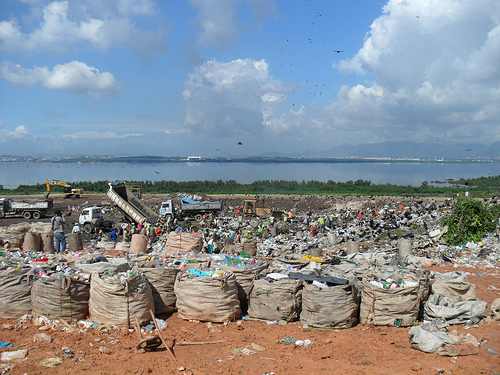
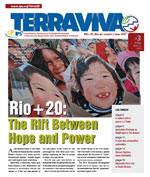
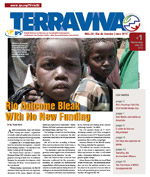
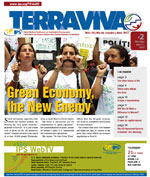

 Add to Google
Add to Google




